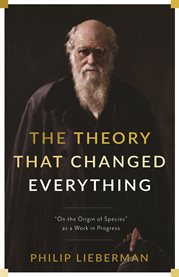Nonfiction
eBook
Details
PUBLISHED
Made available through hoopla
DESCRIPTION
1 online resource
ISBN/ISSN
LANGUAGE
NOTES
Few people have done as much to change how we view the world as Charles Darwin. Yet On the Origin of Species is more cited than read. Some of it is considered outdated; in some ways, it has been consigned to the nineteenth century. In The Theory That Changed Everything, the renowned cognitive scientist Philip Lieberman demonstrates that there is no better guide to the world's living things than Darwin, as the phenomena that he observed are still being explored at the frontiers of science. In a wide-ranging voyage from Darwin's transformative trip aboard the Beagle to Lieberman's own sojourns in the remotest regions of the Himalayas, this book relates contemporary findings to the major concepts of Darwinian theory. Drawing on his own research into the evolution of human linguistic and cognitive abilities, Lieberman explains the paths that adapted human anatomy to language, the acrobatics of the lungs and larynx and a tongue that facilitates speech at the cost of the peril of choking. He demystifies the role of recently identified transcriptional and epigenetic factors encoded in DNA, explaining how nineteenth-century Swedish famines alternating with years of plenty caused survivors' grandchildren to die many years short of their life expectancy. Lieberman is equally at home decoding supermarket shelves and climbing with the Sherpas as he discusses how natural selection explains features from lactose tolerance to ease of breathing at Himalayan altitudes. With conversational clarity and memorable examples, Lieberman relates the insights that led to groundbreaking discoveries in both Darwin's time and our own while asking provocative questions about what Darwin would have made of controversial issues today
Mode of access: World Wide Web







